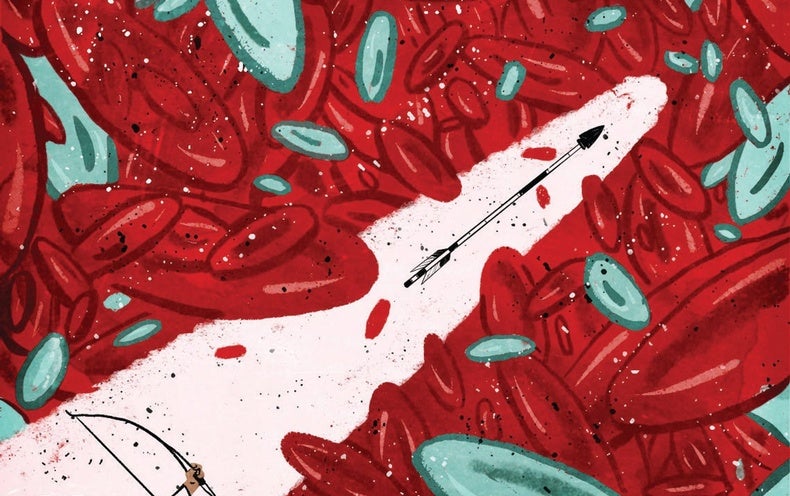![]()
Video: "Alzheimer's Prevention and Treatment: Where are we headed?"
Posts published in “Research”

"A team of neuroscientists led by Florida Atlantic University's Brain Institute sought to answer a fundamental question in their quest to combat Alzheimer's disease -- 'Is amyloid precursor protein the mastermind behind Alzheimer's disease or is it just an accomplice?'"
"A new study confirms that a simple blood test can reveal whether there is accelerating nerve cell damage in the brain. The researchers analysed neurofilament light protein (NFL) in blood samples from patients with Alzheimer's disease. Recently published in JAMA Neurology, the study suggests that the NFL concentration in the blood could be able to indicate if a drug actually affects the loss of nerve cells."
"Much of the genetic risk of Alzheimer’s disease plays out in microglia. But exactly how do risk variants change these cells? At the 14th International Conference on Alzheimer’s and Parkinson’s Diseases, held March 27–31 in Lisbon, Portugal, speakers filled in some gaps, and discussion of this question buzzed in the hallways all week. Christian Haass of the German Center for Neurodegenerative Diseases in Munich characterized progranulin as TREM2’s opposite. While mutations in TREM2 suppress microglial activation, mutations in progranulin permanently rev them up into voracious, toxin-spewing machines. Other speakers associated GWAS hits in general, and the MS4A gene cluster in particular, with hyperactive, damaging microglia. Researchers also highlighted potential therapeutic targets among microglial genes. Two talks presented evidence that suppressing the CD33 receptor can contain amyloidosis (see Part 5 in this series), while another fingered BIN1 as a key culprit in propagating phosphorylated tau."
"Your joints may be achy and your back may be sore, but if you have chronic pain of any type, do something about it. New research from the University of Florida Institute on Aging finds chronic pain — left untreated — can cause the brain to show signs of aging, In some individuals, brain aging has led to decreased mobility, Alzheimer’s and even an earlier death."

"Almost from the moment Jerry Parks was diagnosed with early-onset Alzheimer’s disease, he began changing the status quo. He was 56 at the time, and about a decade younger than all but 5 percent of those with dementia. At the adult day center he attended, Parks insisted the staff stop reading the newspaper out loud to him and others when they were perfectly capable of reading it themselves. Parks became an activist. He met with lawmakers, spoke at national gatherings of the Alzheimer’s Association and pushed for better Social Security disability benefits for people with various forms of dementia."

"A new study has found that adults 59 years and older with higher levels of frailty were more likely to have both Alzheimer’s disease-related brain changes and symptoms of dementia."

"New research from The University of Texas at Dallas suggests that periodic evaluation of changing amyloid levels in certain brain structures may offer an important clue into who may be on a trajectory toward Alzheimer’s disease. Dr. Denise Park (center) and members of her lab discuss recent findings published in Neurology. Park and her colleagues found that an early relationship between amyloid, the protein buildup in the brain commonly associated with Alzheimer’s, and memory was present in adults ages 30 to 59."

"Want to reduce your risk of dementia in older age? Move as much as you can. We've all heard about techniques to get us more physically active — take the stairs, park the car a bit further from your destination, get up and march in place for a minute or two when standing or sitting at a desk. Now a study finds even simple housework like cooking or cleaning may make a difference in brain health in our 70s and 80s."

"n sharp contrast to other illnesses and despite many efforts, huge expense and hundreds of clinical trials, no new treatments have been approved in the past 16 years. The emphasis has been on drugs targeting beta-amyloid proteins, which clump into plaques in the brains of afflicted people. Unfortunately, these approaches have not yet yielded the results we hoped for."
